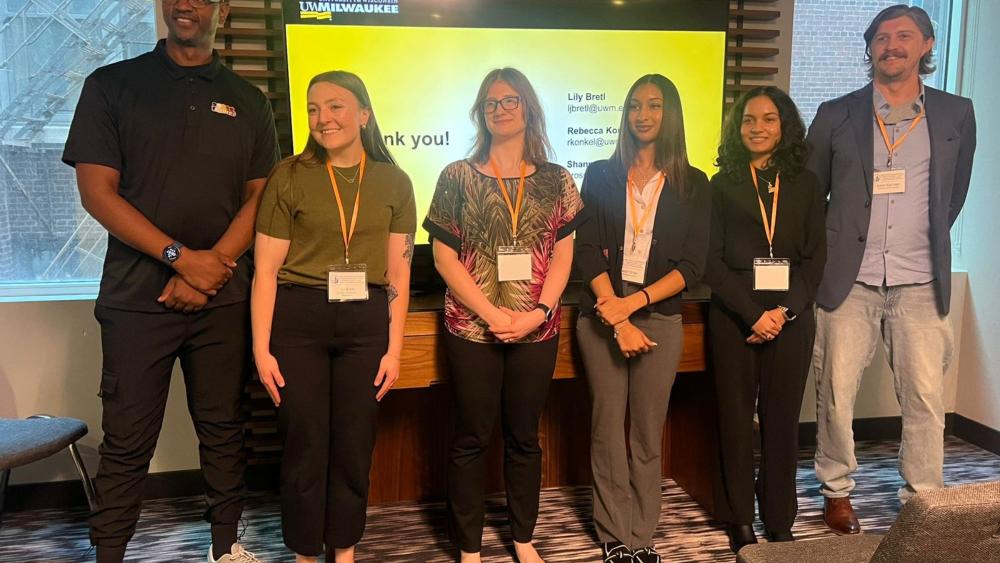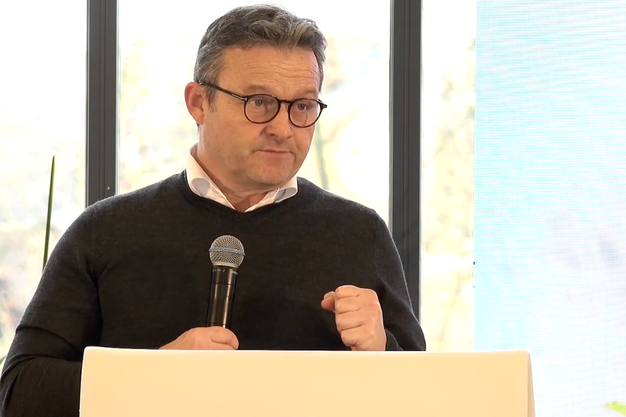Leibniz-HKI Honored Again for Its Commitment to Equal Opportunity in Personnel Management – Bioengineer.org

Report on Leibniz-HKI’s Achievements in Equality and Sustainability
Executive Summary
The Leibniz Institute for Natural Product Research and Infection Biology (Leibniz-HKI) has received the TOTAL E-QUALITY award for 2025-2027 and a concurrent Sustainability Award. This report details the institute’s strategic alignment of its organizational culture with key United Nations Sustainable Development Goals (SDGs). The dual accolades recognize a comprehensive and integrated approach to embedding gender equality, diversity, and sustainable practices within its institutional framework, establishing Leibniz-HKI as a benchmark for socially responsible scientific research.
Institutional Commitment to Sustainable Development Goals (SDGs)
Advancing SDG 5: Gender Equality
Leibniz-HKI demonstrates a profound commitment to SDG 5 by systematically institutionalizing gender equality. The institute’s policies and programs are designed to empower women and ensure their full and effective participation in scientific and leadership roles. Key achievements include:
- Achieving gender parity in scientific positions at all career levels, including senior leadership.
- Maintaining a workforce where over half of the 450 employees are women, with female representation reaching 64% in administrative and technical sectors.
- Implementing targeted career development programs specifically for women researchers to dismantle barriers to advancement.
- Conducting outreach initiatives to encourage girls and young women to pursue careers in STEM, thereby contributing to the pipeline of future female scientists.
Promoting SDG 4 (Quality Education) and SDG 8 (Decent Work and Economic Growth)
The institute fosters an environment conducive to lifelong learning and decent work for all. By integrating professional development with a supportive and inclusive culture, Leibniz-HKI contributes to SDG 4 and SDG 8.
- Quality Education and Lifelong Learning (SDG 4): Initiatives like the “Female Empowerment@Leibniz-HKI” workshop series provide specialized training in areas such as conflict resolution and cognitive load management. Outreach events like Girls’ Day promote inclusive and equitable quality education in STEM fields.
- Decent Work and Inclusive Growth (SDG 8): The TOTAL E-QUALITY award affirms the institute’s fair and equitable employment policies. The focus on creating a diversity-friendly onboarding process and robust employee retention strategies ensures a productive and inclusive work environment for all employees.
Fostering SDG 10 (Reduced Inequalities) and SDG 16 (Strong Institutions)
Leibniz-HKI’s operational framework actively works to reduce inequalities and build an effective, accountable, and inclusive institution.
- Reduced Inequalities (SDG 10): The institute’s commitment to an intersectional framework addresses various axes of identity. With one-third of its staff from abroad, it cultivates an intercultural environment that reduces inequalities based on nationality and origin.
- Peace, Justice, and Strong Institutions (SDG 16): The repeated external validation by TOTAL E-QUALITY Deutschland e.V. and the Leibniz Association demonstrates transparency and accountability. The systematic institutionalization of equality policies exemplifies the development of an effective and inclusive institutional structure.
Key Initiatives and Programmatic Outcomes
Career Development and Empowerment
Central to the institute’s strategy is the “Female Empowerment@Leibniz-HKI” initiative, which directly supports the career advancement of postdoctoral women scientists. This program includes:
- Thematic workshops addressing critical professional skills.
- Personalized career counseling sessions.
- Structured network-building meetings to foster mentorship and peer support.
Fostering an Inclusive Scientific Culture
Leibniz-HKI cultivates a reflective and socially conscious research ethos through various cultural and outreach activities.
- The “Science meets Society” book club, in collaboration with the “Balance of the Microverse” Cluster of Excellence, provides a forum for researchers to critically engage with topics of gender, diversity, and systemic discrimination.
- Public engagement, biographical features, and social media campaigns are used to increase the visibility of female scientists, creating role models and challenging societal stereotypes.
Impact Assessment and External Recognition
Workforce Demographics
The effectiveness of Leibniz-HKI’s policies is reflected in its workforce composition. The institute has successfully established a gender-balanced scientific staff, including at the highest leadership levels. This quantitative success provides concrete evidence of its contribution to SDG 5.
Sustainability and Integrated Strategy
The conferment of the Sustainability Award alongside the TOTAL E-QUALITY award highlights the institute’s integrated vision. This dual recognition confirms that advancing gender equality (SDG 5) and reducing inequalities (SDG 10) are intrinsically linked to broader environmental, social, and economic sustainability goals, reflecting a holistic interpretation of the 2030 Agenda for Sustainable Development.
Conclusion: A Model for Sustainable Research Ecosystems
The consistent recognition of Leibniz-HKI by TOTAL E-QUALITY underscores its role as a leader in operationalizing the Sustainable Development Goals within a high-impact research setting. The institute’s multidimensional approach, which combines structured policies, targeted programs, and a commitment to cultural change, provides a replicable model for how scientific organizations can foster innovation and excellence by creating equitable, inclusive, and sustainable research ecosystems.
Which SDGs are addressed or connected to the issues highlighted in the article?
-
SDG 5: Gender Equality
The article is centered on the Leibniz-HKI receiving the TOTAL E-QUALITY award for its commitment to gender equality. It details specific initiatives like the “Female Empowerment@Leibniz-HKI” workshop series for women scientists and outreach programs such as Girls’ Day to encourage young women in STEM. The institute’s demographic data, showing gender parity in scientific roles and leadership, directly relates to achieving gender equality.
-
SDG 8: Decent Work and Economic Growth
The article highlights the institute’s focus on “fair employment policies,” “equitable career development,” and creating an “inclusive organizational culture.” These efforts, aimed at retaining and nurturing a diverse talent pool, contribute to providing decent work and fostering a productive and inclusive work environment.
-
SDG 4: Quality Education
Leibniz-HKI’s commitment to “actively promoting science education and career pathways for girls and young women in STEM fields” through events like Girls’ Day directly supports the goal of inclusive and equitable quality education. This initiative aims to reduce gender imbalances in science from an early stage.
-
SDG 10: Reduced Inequalities
The institute’s policies are described as operationalizing “intersectional frameworks that consider various axes of identity, including gender, nationality, and professional rank.” With one-third of its staff being international, Leibniz-HKI fosters an “intercultural work environment,” thereby working to reduce inequalities based on national origin within its community.
-
SDG 12: Responsible Consumption and Production
The simultaneous receipt of the Sustainability Award indicates that the institute’s strategy “integrates sustainable development principles across its operational and research activities.” This commitment to embedding sustainable practices within an organization aligns with the goal of ensuring sustainable consumption and production patterns.
What specific targets under those SDGs can be identified based on the article’s content?
-
Target 5.5: Ensure women’s full and effective participation and equal opportunities for leadership.
The article explicitly states that Leibniz-HKI “achieves gender parity in scientific positions across all levels, including senior leadership roles,” which directly corresponds to this target’s objective of ensuring women have equal opportunities for leadership.
-
Target 8.5: Achieve full and productive employment and decent work for all women and men… and equal pay for work of equal value.
The institute’s focus on “fair employment policies,” “equitable career development,” and “employee retention strategies” aims to provide decent work for its entire workforce. The emphasis on gender equality and an inclusive culture supports the principle of decent work for all.
-
Target 4.5: Eliminate gender disparities in education and ensure equal access to all levels of education and vocational training.
The institute’s outreach programs, such as facilitating participation in “Girls’ Day,” are designed to promote STEM careers for girls and young women. This is a direct effort to eliminate gender disparities in science education and career pathways.
-
Target 10.2: Empower and promote the social, economic and political inclusion of all, irrespective of… origin.
The article mentions that “one-third of employees hail from abroad” and that the institute “fosters an intercultural work environment.” This demonstrates a commitment to the inclusion of people irrespective of their national origin, directly addressing this target.
-
Target 12.6: Encourage companies… to adopt sustainable practices and to integrate sustainability information into their reporting cycle.
Leibniz-HKI’s receipt of the Sustainability Award for integrating “sustainable development principles across its operational and research activities” shows its adoption of sustainable practices. The article also mentions that its goals and actions are “transparent and accountable” through external evaluations, which aligns with the reporting aspect of this target.
Are there any indicators mentioned or implied in the article that can be used to measure progress towards the identified targets?
-
Proportion of women in leadership and scientific positions.
The article provides specific data that serves as a direct indicator for Target 5.5. It states that more than half of the 450 employees are women, there is “gender parity in scientific positions across all levels, including senior leadership roles,” and women make up “approximately 64%” of administrative and technical staff.
-
Proportion of international staff.
As an indicator for Target 10.2, the article quantifies the diversity of its workforce by stating that “one-third of employees hail from abroad.” This statistic measures the inclusion of individuals from different national origins.
-
Implementation of policies and programs for gender equality and inclusion.
The existence and success of initiatives like the “Female Empowerment@Leibniz-HKI” workshop series, the “Science meets Society” book club, and participation in “Girls’ Day” serve as qualitative indicators of the institute’s commitment to SDGs 4, 5, and 10. The repeated TOTAL E-QUALITY award acts as an external validation of these efforts.
-
Adoption of a formal sustainability strategy.
The receipt of the Sustainability Award implies the existence of a formal strategy and measurable actions for sustainability, which is an indicator for Target 12.6. The article confirms this by stating the institute’s strategy “integrates sustainable development principles across its operational and research activities.”
SDGs, Targets, and Indicators Analysis
| SDGs | Targets | Indicators |
|---|---|---|
| SDG 5: Gender Equality | Target 5.5: Ensure women’s full and effective participation and equal opportunities for leadership. |
|
| SDG 8: Decent Work and Economic Growth | Target 8.5: Achieve full and productive employment and decent work for all women and men. |
|
| SDG 4: Quality Education | Target 4.5: Eliminate gender disparities in education and ensure equal access. |
|
| SDG 10: Reduced Inequalities | Target 10.2: Empower and promote the social, economic and political inclusion of all, irrespective of… origin. |
|
| SDG 12: Responsible Consumption and Production | Target 12.6: Encourage companies to adopt sustainable practices and integrate sustainability information into their reporting. |
|
Source: bioengineer.org
What is Your Reaction?
 Like
0
Like
0
 Dislike
0
Dislike
0
 Love
0
Love
0
 Funny
0
Funny
0
 Angry
0
Angry
0
 Sad
0
Sad
0
 Wow
0
Wow
0













































































